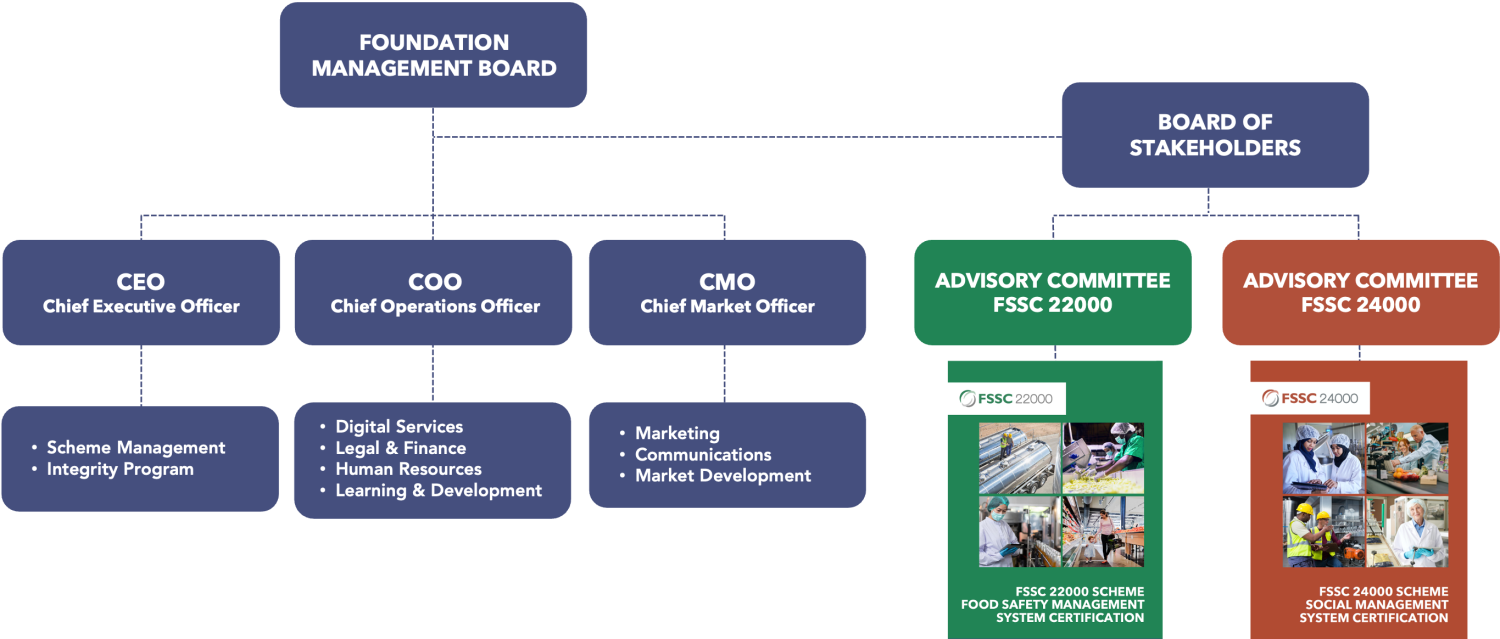Scheme Development and Revision Management
The strategic development and review process of the existing requirements of the relevant FSSC Scheme, documentation, and all other related materials, is based on the required input from various internal project teams and external stakeholders.
Normative documents that form part of the relevant Scheme are not owned by the Foundation but by the appropriate organization,
i.e., ISO or BSI. These normative documents are subject to a public consultation period of 60 days, as set out in their respective procedures, relating to changes, standard review, or new standard development.
The FSSC Scheme requirements are subject to internal and external review, with a recommendation by the Advisory Committee and approval by the Board of Stakeholders. The Advisory Committee includes key stakeholders, including Certification Body associations, Accreditation Bodies, and the industry.
The final draft version of a new or updated Scheme goes through the FSSC Advisory Committee, with final approval by the Board of Stakeholders and oversight by the Management Board.







